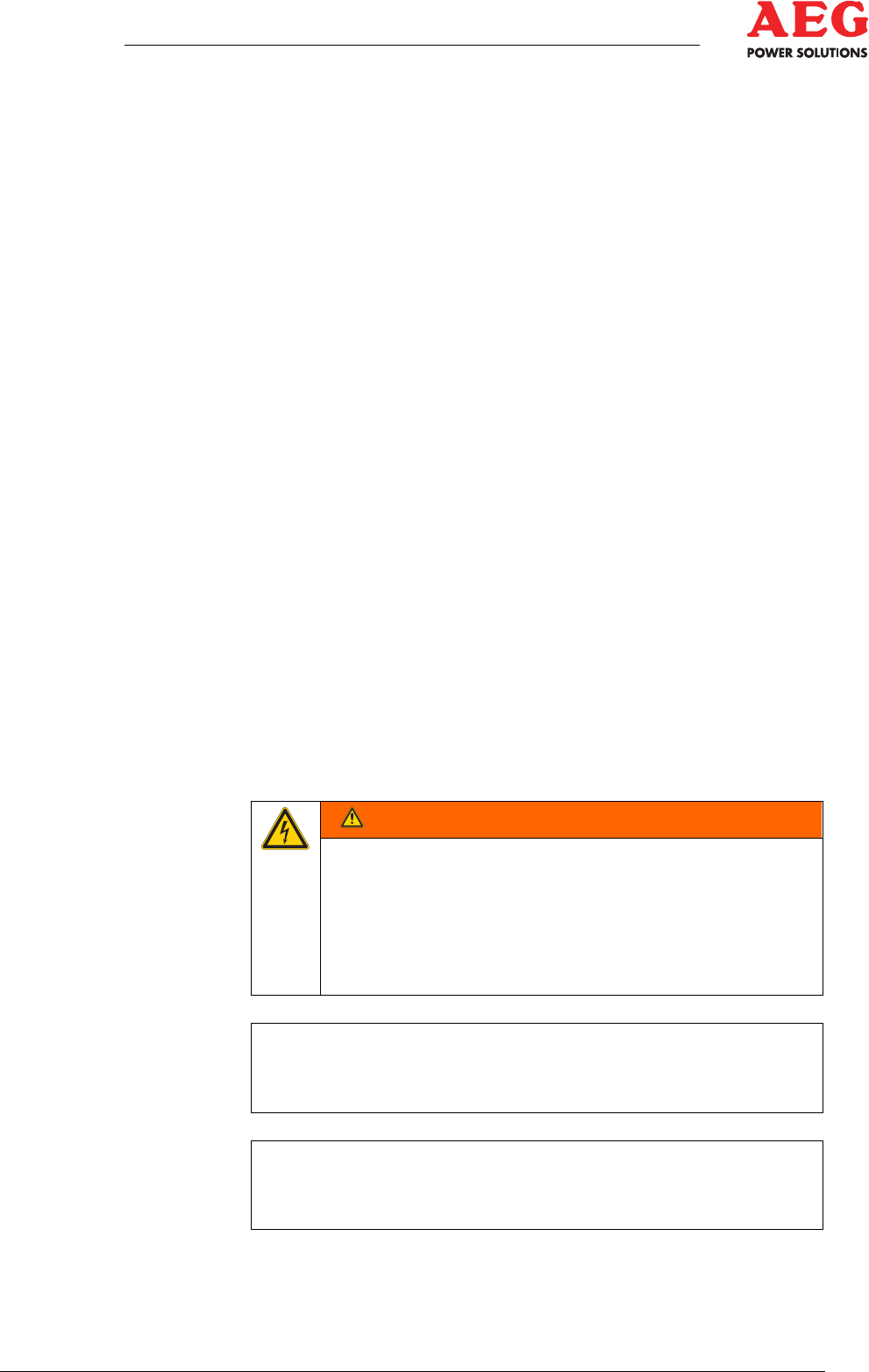Operating instructions
Table Of Contents
- OPERATING INSTRUCTIONS
- Table of Contents
- 1 General Information
- 2 Safety
- 3 Scope of Delivery
- 4 Equipment Specifications
- 5 Functional Description
- 6 Storage and Transport
- 7 Installation
- 8 Commissioning
- 9 Operation
- 10 Maintenance
- 11 Decommissioning and Dismantling
- List of Tables
- List of Figures

Protect PV.600/800 OD Series - Operating Instructions
8000041160 BAL Page 87 of 100
A
correct test report, completed in full, is important for technicians
as evidence of exoneration in case of later complaints or for inves-
tigations in case of damage. For this reason, test reports should be
retained for a long time (around 10 years).
10.2 Maintenance and Inspection
10.2.1 Visual Inspection
Visual inspections should be carried out in accordance with
DIN EN 13018.
Inspections must involve careful checks for the following in the
equipment:
• Mechanical damage
• Corrosion, thermal changes to and tightness of the electri-
cal connections
• Defective fuses
• Foreign bodies
• Fans dirty or damaged
• Filter mat dirty or damaged
• Moisture
• Accumulation of conductive dirt or dust
Safety devices and warning notices should be checked for dam-
age and legibility.
If there is condensation in the equipment, the internal heating unit
should be checked to determine whether it is working properly.
10.2.2 Cleaning
WARNING
Entry of water into electrical equipment
Risk to life due to electric shock.
Do not use water to clean the cabinets.
Do not place any vessels containing fluids (beverage cups,
for example) on electrical equipment.
i
Only equipment tested in accordance with DIN VDE 0680 may
be used for cleaning.
i
If there is condensation in the equipment parts that are to be
cleaned, cleaning must not be carried out.
The equipment must be cleaned if it is heavily soiled.










